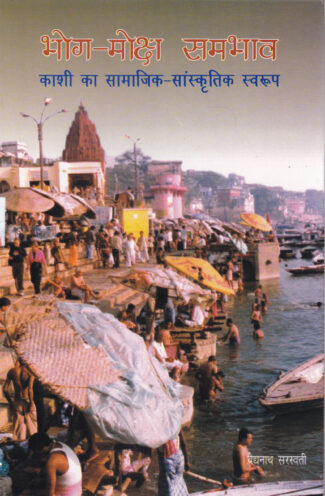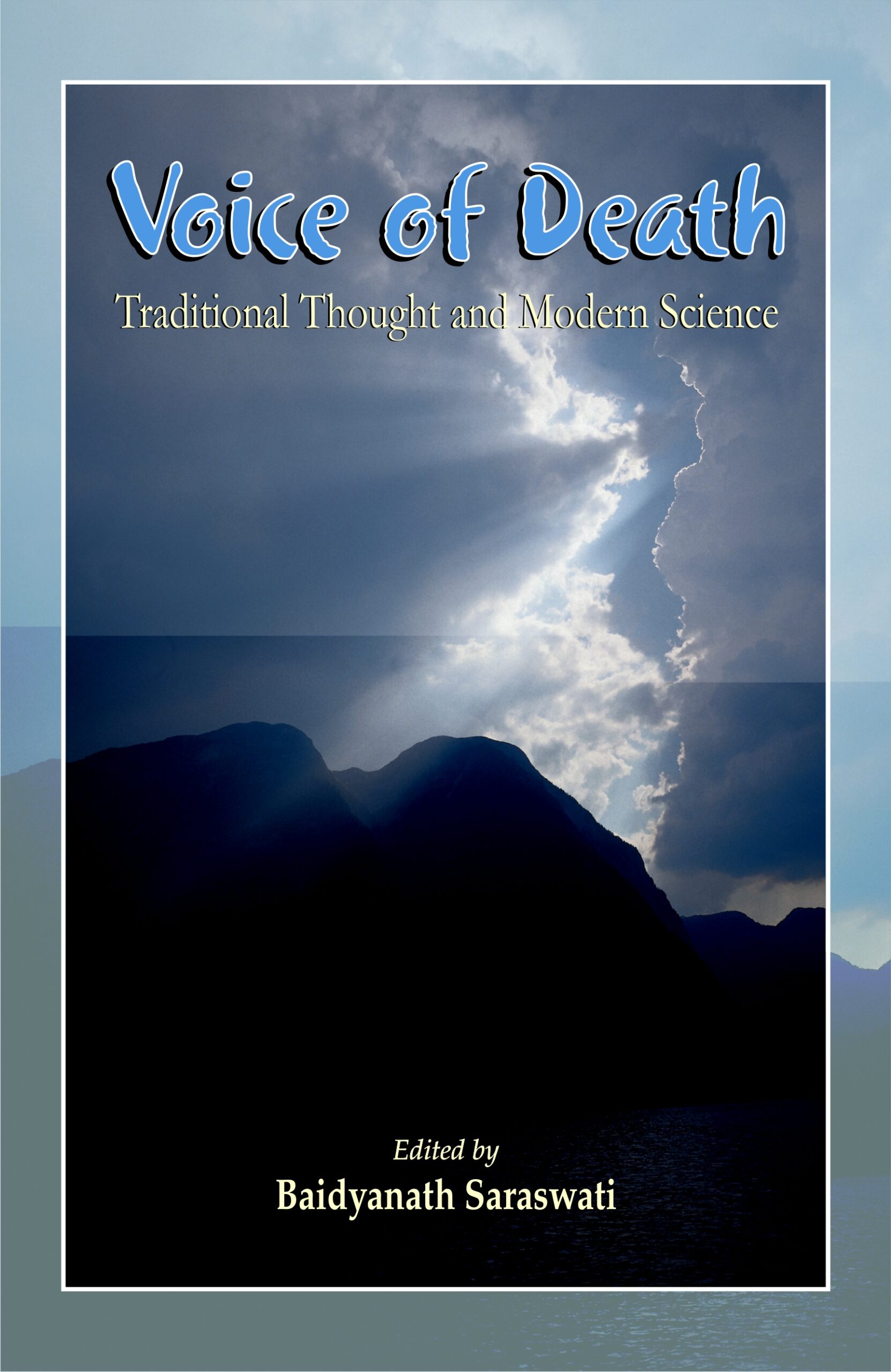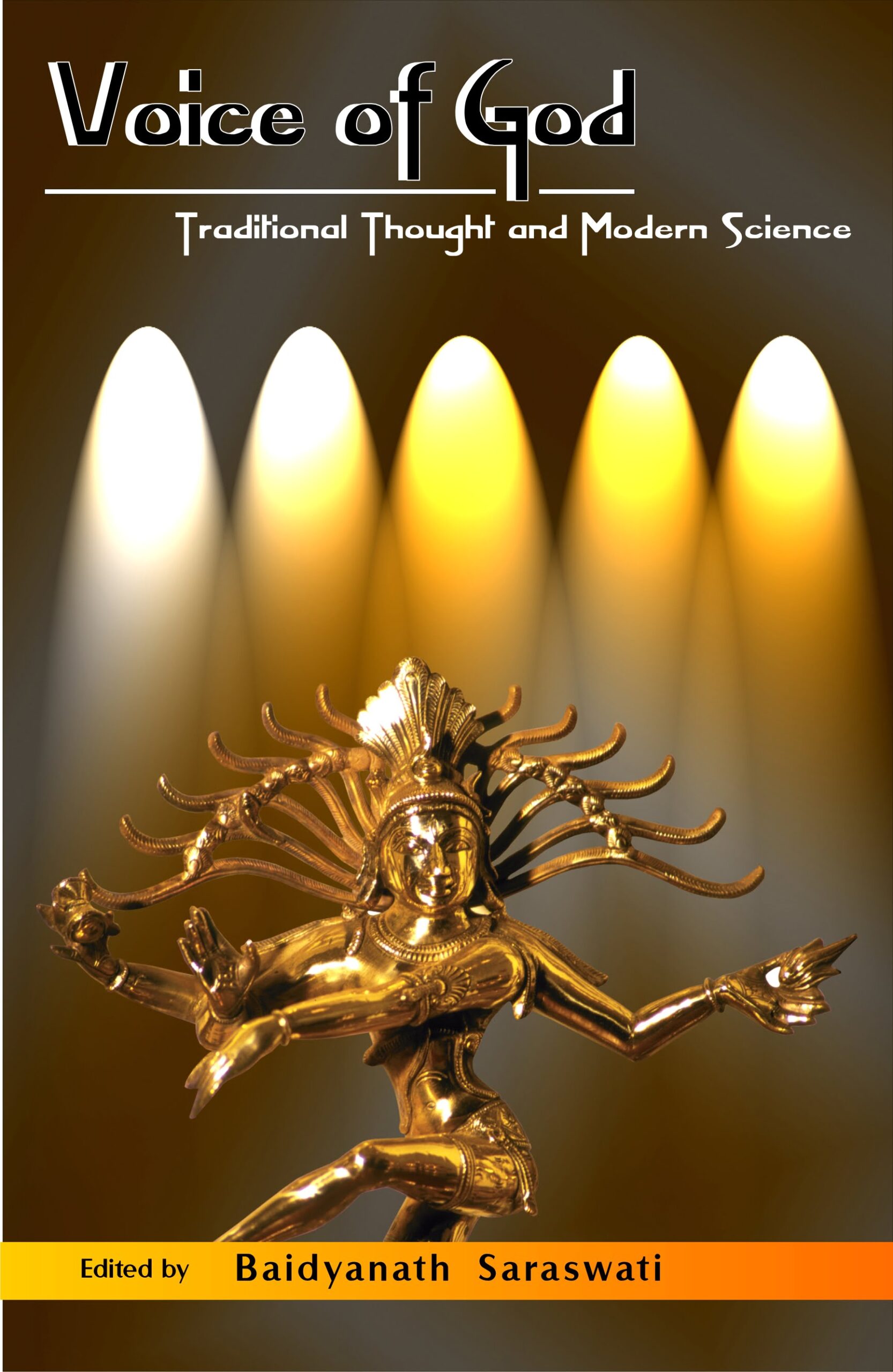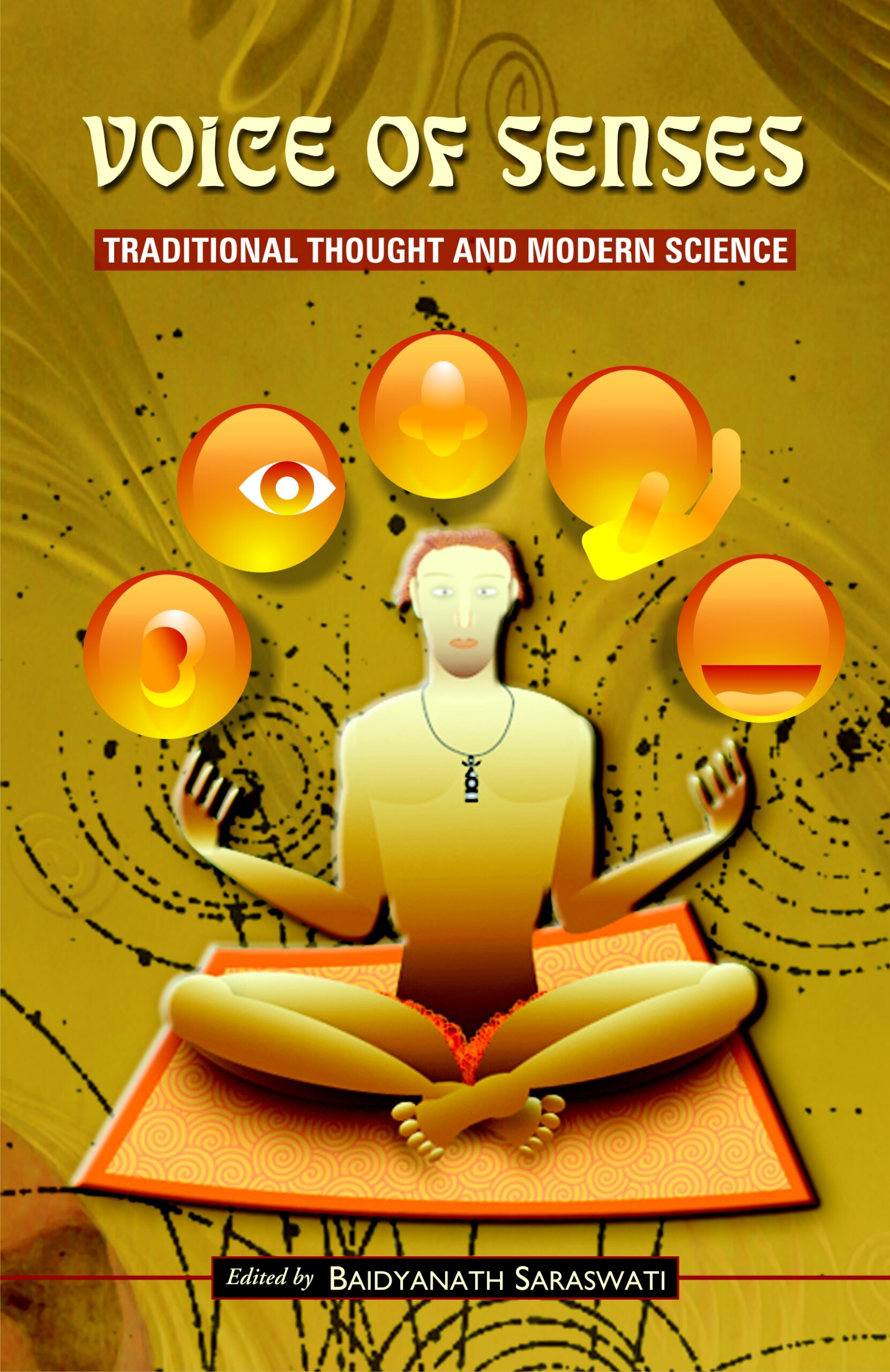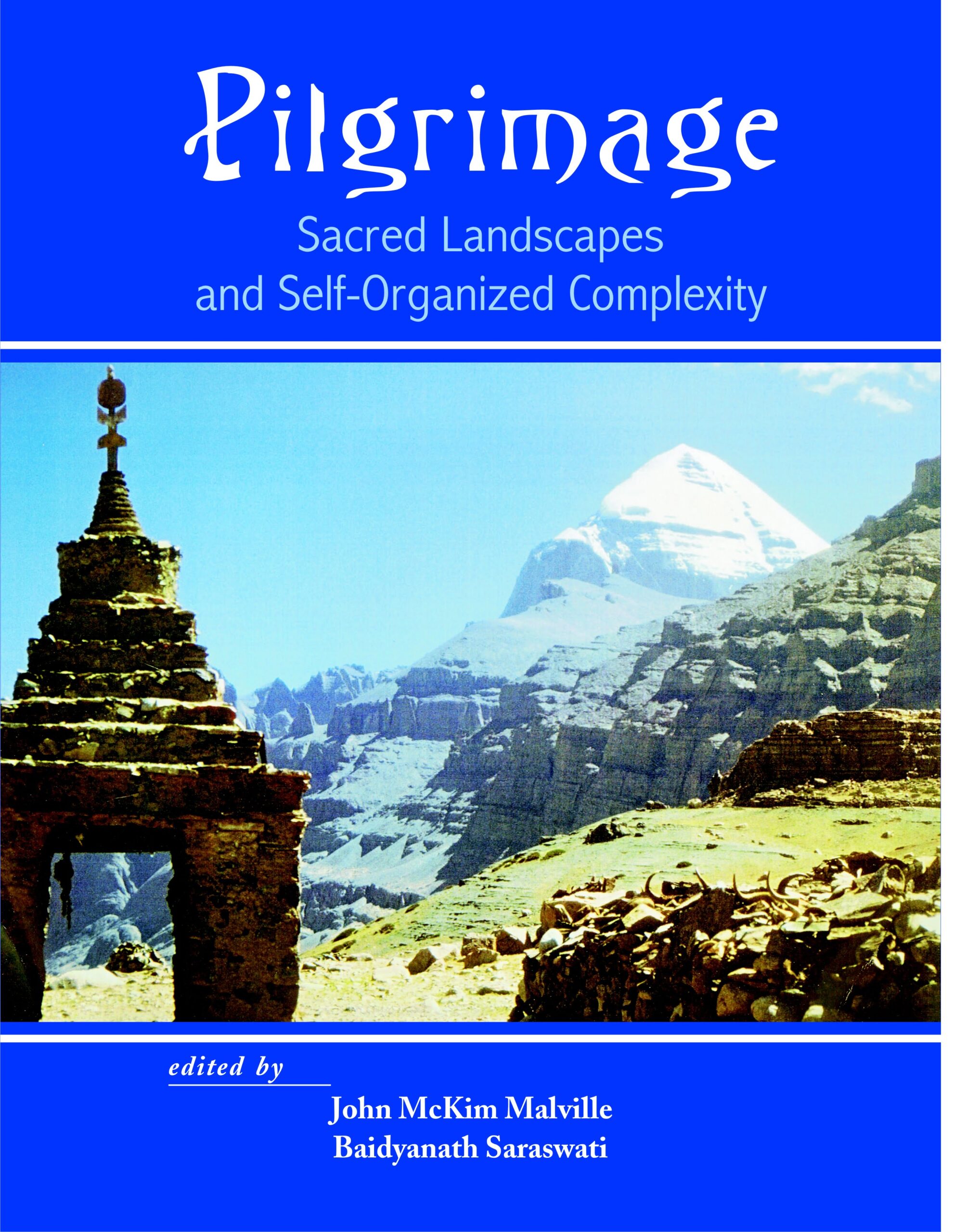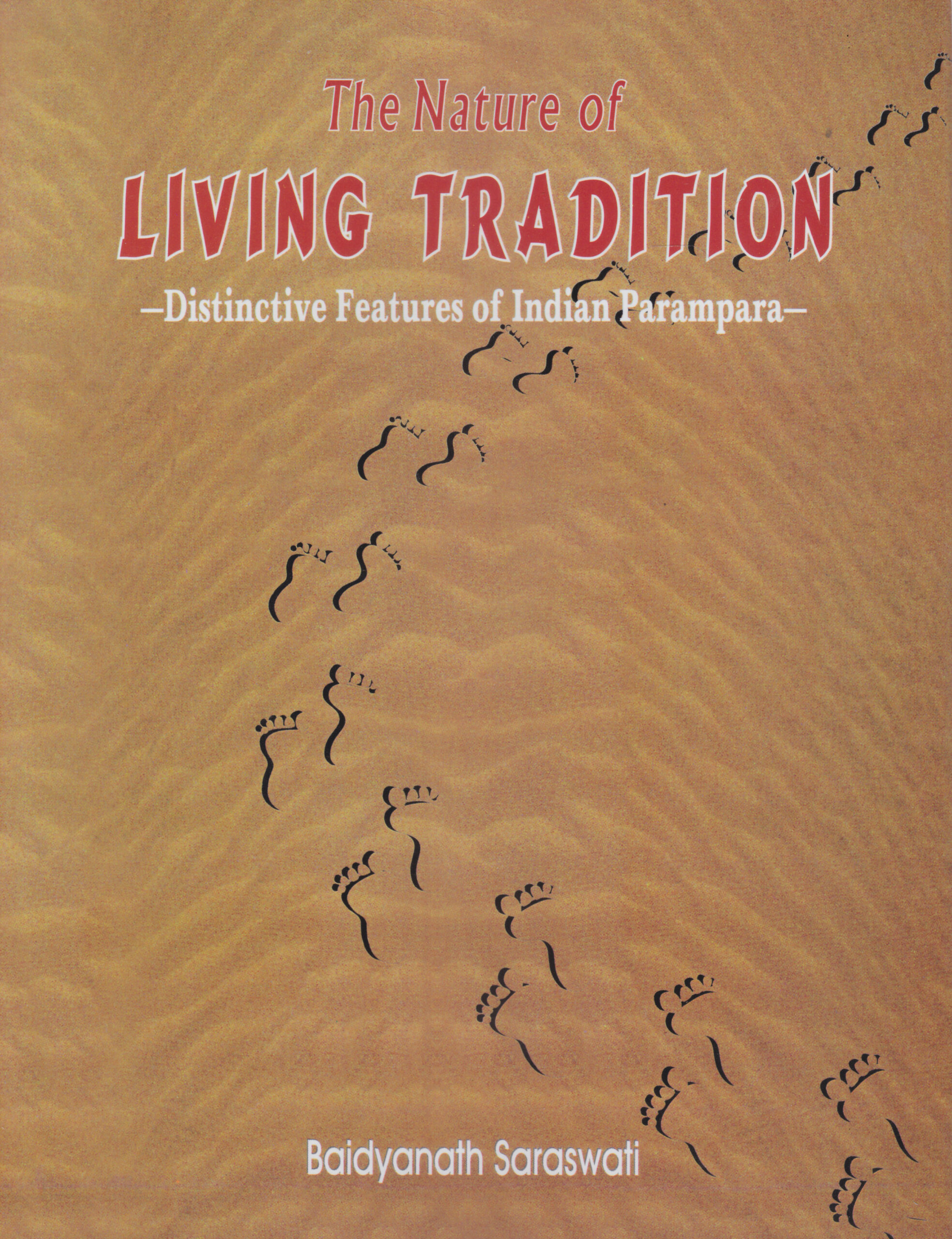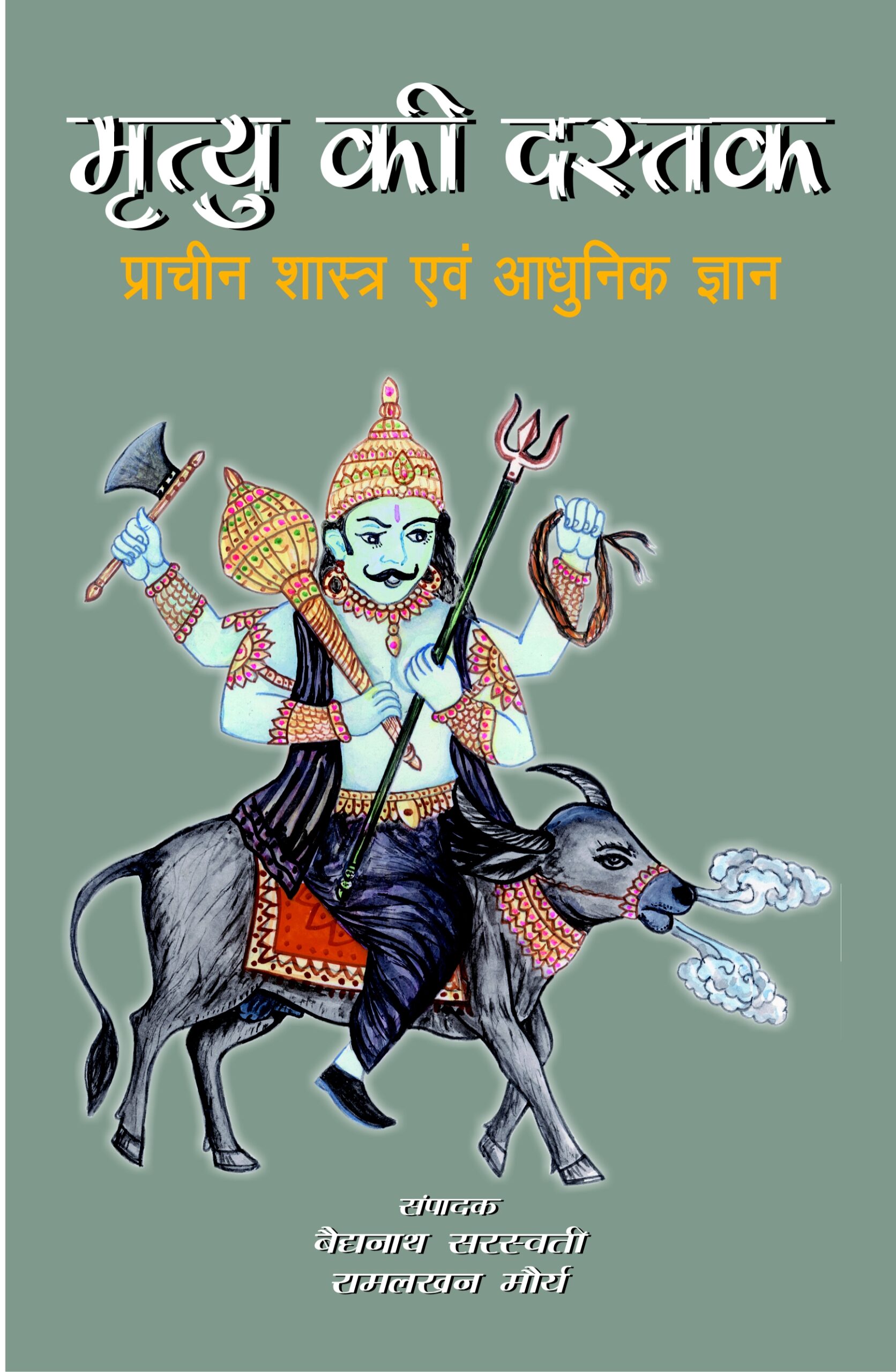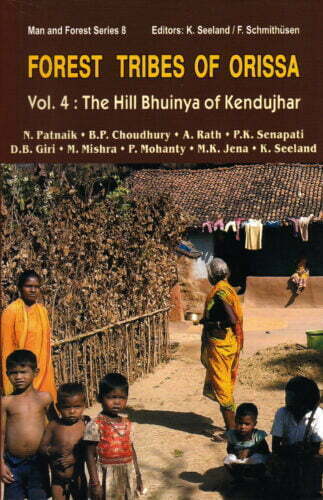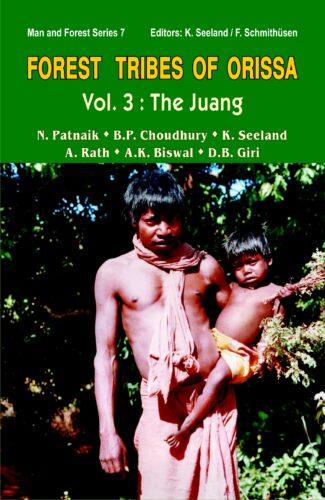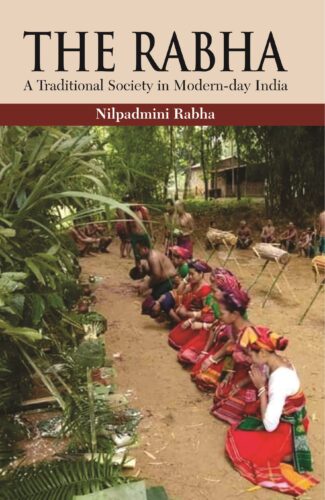

Bhog-Moksha Sambhava...
Bhog-Moksha Sambhava
Kashi Ka Samajika-Samskritika Svarupa by: Baidyanath SaraswatiThis book contains 57 essays on the history of Kashi. They highlight the important religions, sects, factions of Kashi and their involvement in cultural traditions social and economic.
₹850.00 Original price was: ₹850.00.₹765.00Current price is: ₹765.00.
ISBN: 9788124601518
Year Of Publication: 2000
Edition: 1st
Pages : xiii, 362
Language : Hindi
Binding : Hardcover
Publisher: D.K. Printworld Pvt. Ltd.
Size: 23 cm.
Weight: 700
This book contains 57 essays on the history of Kashi. They highlight the important religions, sects, factions of Kashi and their involvement in cultural traditions social and economic.
- Sale!Gender, Space and Resistance: Women and Theatre in India by: Anita Singh, Tarun Tapas Mukherjee,
₹1,800.00Original price was: ₹1,800.00.₹1,620.00Current price is: ₹1,620.00.This book explores the presence and contribution of women to the recorded history of Indian theatre. It provides a platform to raise, discuss and debate issues, aesthetics and techniques connected with the Indian theatre in the backdrop of political, social and moral values of women in theatre. An attempt to fill up the vacuum of scholarly literature on the role of women in theatre, this book expects to create enough academic value and interest. Its content unearths the dynamics of gender in the history of theatre. It extensively deals with the theoretical and practical aspects of women’s theatre.
This anthology also addresses the various social issues associated with gender inequality through essays, play-texts and interviews. In a similar vein, it delves deep into the relationship among theatre, public/private sphere and gender. This work purports to address a variety of needs of feminist researchers and laymen who are not conversant with the contribution of women to theatre and its obvious political and transformative intent.
This collection also intends to see how the theatrical space could unsettle the gendered binaries regulating women’s presence in public space, and proposes to see why and how relevant feminist politics is in re-imagining a vibrant and inclusive concept of gender fairness and justice in contemporary India. It extends high referral value for researchers, students and even laymen with interest in the role of women in theatre. - Sale!Forest Tribes of Orissa Vol. 4: The Hill Bhuinya of Kendujhar by: Klaus Seeland, Franz Schmithusen, Nityananda Patnaik, B.P. Choudhury, A. Rath, P.K. Senapati, D.B. Giri, M. Mishra, P. Mohanty, Mihir K. Jena,
₹1,200.00Original price was: ₹1,200.00.₹1,080.00Current price is: ₹1,080.00.Forests, a precious renewable resource, are habitats of many aborigines and treasure houses of a large number of flora and fauna. Any distortion to them imbalances the life of their inhabitants. Man and Forest series highlights the relevance of indigenous knowledge systems of various South Asian tribal communities in the sustainable management of local resources/forests. Here comes the importance of making a scientific enquiry into the application of indigenous tribal knowledge in rediscovering their methods of production, consumption and conservation, against the all-pervading impact of modernity and the ever-increasing demand for an unbridled use of natural resources.
This monograph The Hill Bhuinya of Kendujhar is the eighth in the Man and Forest series and fourth in the Forest Tribes of Orissa: Lifestyle and Social Conditions of Selected Orissan Tribes. It helps in understanding how the Bhuinya perceive their ecosystem; how their sociocultural life is interwoven with the forests and other elements of their ecosystem; their management systems for upkeeping it; and the role their indigenous knowledge plays in their production, consumption and conservation practices, against the backdrop of a considerable depletion of biodiversity during the latter part of the twentieth century.
This book is the result of a detailed study on the forest/hill-dwelling tribe of the Bhuinya of Bhuinyapirh in Banspal Block, Kendujhar District, Odisha since 1996 by a team of anthropologists, ethnosociologists, botanists and ethnobotanists. It was critically revised and analysed, using authentic methods due to changes in the state and central government policies, recently. - Sale!Forest Tribes of Orissa Vol. 3: The Juang by: Nityananda Patnaik, B.P. Choudhury, Klaus Seeland, A. Rath, A.K. Biswal, D.B. Giri,
₹900.00Original price was: ₹900.00.₹810.00Current price is: ₹810.00.In the management of renewable resources, forests have undeniably a vital role, and today, as never before, their conservation is an urgency. In view of this dire necessity the series Man and Forest tries to highlight the relevance of indigenous knowledge of various South Asian tribal communities in the sustainable management of forests/local resources more specially against the growing challenges of economic development vis-à-vis environmental hazards and a rapidly declining resource base. A scientific inquiry into indigenous knowledge is an effort to discover/rediscover the tribals’ traditional modes of production and conservation. For them it is the only source to cope with the problems of modernity affecting their lives and precarious environments. Forest Tribes of Orissa: The Juang is the seventh monograph in the series Man and Forest and, after the publication of an account of the forest world of the Dongaria Kondh in 2002, and the Kuttia Kondh in 2006. Being a tribal community in transition, the authors have tried to document and thus safeguard its local traditional knowledge of conservation, use and management of forests and natural resources. They give an account of how the Juang classify trees and other plants, hills, forests, crops and animals. Their subsistence economy, agricultural system, social organization, religious beliefs and other important socio-cultural aspects of forest life have been extensively treated. The lifestyle of this tribal community is finally reflected on the background of forest policy and the impact it has on their livelihood. The present book is, as most of the volumes in the series, the outcome of nearly ten years’ research venture involving an interdisciplinary, intercultural team of sociologists, ethnobotanists, and social anthropologists
- Sale!Forest Tribe of Orissa: Vol. 2: The Kuttia Kondh by: Mihir K. Jena, Padmini Pathi, Kamala Kumari Patnaik, Klaus Seeland,
₹1,100.00Original price was: ₹1,100.00.₹990.00Current price is: ₹990.00.In the management of renewable resources, forests have undeniably a vital role, and today, as never before, their conservation is an urgency. In view of this dire necessity the series Man and Forest tries to highlight the relevance of indigenous knowledge of various South Asian tribal communities in the sustainable management of forests/local resources more specially against the growing challenges of economic development vis-a-vis environmental hazards and a rapidly declining resource base. A scientific inquiry into indigenous knowledge is an effort to discover/rediscover the tribals traditional modes of production and conservation. For them it is the only source to cope with the problems of modernity affecting their lives and precarious environments. Forest Tribes of Orissa: The Kuttia Kondh is the sixth monograph in the series Man and Forest and, after the publication of an account of the forest world of the Dongaria Kondh in 2002, the second volume to deal with an aboriginal tribe of Orissa. Being a tribal community in transition, the authors have tried to document and thus safeguard its local traditional knowledge of conservation, use and management of forests and natural resources. They give an account of how the Kuttia Kondh classify trees and other plants, hills, forests, crops and animals. Their subsistence economy, agricultural system, social organization, religious beliefs and other important socio-cultural aspects of forest life have been extensively treated. The lifestyle of this tribal community is finally reflected on the background of forest policy and the impact it has on their livelihood. The present book is, as most of the volumes in the series, the outcome of nearly ten years research venture involving an interdisciplinary, intercultural team of sociologists, ethnobotanists, social anthropologists and other social scientists.
- Sale!The Rabha: A Traditional Society in Modern-Day India by: Nilpadmini Rabha
₹5,600.00Original price was: ₹5,600.00.₹5,040.00Current price is: ₹5,040.00.The Rabha is an ancient tribal community of the northeast area of India. With both a unique language and religion, they represent an ancient culture continuing to live in modern India; while some aspects of the Hindu religion appear to be assimilated by the community, the author is careful to note that they continue to retain much of their exclusive features, and points out some of those. The author goes to a great depth to present both the religious and social aspects of the Rabha people, and weaves a tapestry of the interrelationships between the two, which serves as the basis for the Rabha life today, as it has also functioned historically. She goes further, pointing out the changes of the Rabha that are occurring in modern Indian society, and points to some influences that modern religions are having on the traditional rituals and rites. With its in-depth study of the unique features of a little-known, ancient society of North East India, the text should be of considerable value for the sociologist, as well as the student of little-known tribal religions; it will also provide a great deal of knowledge to those who are trying to understand the changes that are taking place in modern Indian society, as well as other transitioning nations.


